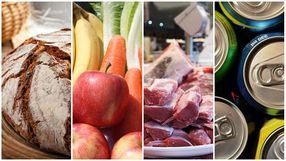TÜV SÜD provides information on food labeling in restaurants, canteens and catering
Advertisement
The EU Food Information Regulation has been regulating the labeling of allergens, nutritional values, food imitations and information on the origin of packaged foods for over ten years. But what about a visit to a restaurant, lunch in the canteen or cafeteria? For many people, eating out is part of everyday life. To ensure that consumers are well informed, the labeling of allergens and additives is mandatory. For gastronomy, catering and communal catering, this means above all strict compliance with the recipe. TÜV SÜD provides an overview of the most important mandatory and voluntary information on menus.
"The first thing you look at when eating out is always the menu. Its design is not only an important advertisement in the catering industry, but is also partly regulated by law. After all, anyone who has to do without certain ingredients should be able to rely on transparent and reliable labeling. After all, it is crucial for a safe and relaxed choice of food," says Dr. Andreas Daxenberger, food expert at TÜV SÜD.
Mandatory information: Allergens and additives must be clearly recognizable
For people with food intolerances or allergies, a visit to a restaurant or canteen is often associated with uncertainty. This makes clear and reliable labeling of allergens and additives all the more important. This is required by law and serves to protect guests. Consumers should ensure that the labeling is in writing. Verbal information is only sufficient if there is a recipe book in which the allergens can be viewed. Digital solutions such as QR codes are also only permitted if they are immediately accessible and barrier-free.
Voluntary information: Guidance for conscious eating decisions
More and more guests are paying attention to aspects such as animal welfare, regionality, sustainability or vegan preparation when eating out. Many restaurants are picking up on this trend and adding voluntary information to their menus - such as the origin of the ingredients, the form of farming or the carbon footprint of individual dishes. Such information is a valuable guide for consumers when choosing food that meets their personal values and needs. However, it is important to note that even voluntary information must be correct and comprehensible. Misleading or unverifiable statements can not only affect the trust of guests, but also have legal consequences - for example in the event of deception or competition law infringements.
Digital menus: more convenience - but also more responsibility
Digital menus on tablets or via QR codes are now standard in many catering establishments. They offer convenience and flexibility for guests - for example through multilingual menus, additional information or the option of obtaining information online in advance. To ensure that this convenience does not come at the expense of information quality, clear legal requirements also apply here. Information on allergens, additives or ingredients must be complete, up-to-date and immediately accessible, regardless of the end device or location. This is particularly important for consumers if dishes change frequently or new ingredients such as plant-based proteins or algae are used. A well-maintained digital menu can help guests to find their way around quickly and safely - provided the information is correct and easy to understand.
Cleanliness and transparency: how businesses protect their guests
In addition to a reliable menu design and avoiding the unintentional spread of allergenic ingredients, the hygienic handling of food in the kitchen is crucial for consumer safety. Catering businesses must therefore adhere to strict hygiene measures. TÜV SÜD supports businesses with systematic hygiene audits to minimize health risks and comply with legal and internal standards. Among other things, auditors assess the correct labeling of allergens and additives on site, as well as traceability based on product samples.
"Many catering businesses want to offer their guests transparent and reliable information - but often encounter practical challenges such as a lack of staff or outdated templates," says Dr. Daxenberger. "Regular hygiene audits help to identify risks at an early stage and strengthen guest confidence in the long term."
Note: This article has been translated using a computer system without human intervention. LUMITOS offers these automatic translations to present a wider range of current news. Since this article has been translated with automatic translation, it is possible that it contains errors in vocabulary, syntax or grammar. The original article in German can be found here.



































































